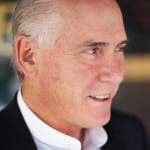
When global executive search firm Spencer Stuart launched its now infamous CMO study in 2004, it sent a chilling message across the marketing world. That first year, the report declared the average tenure of a CMO was 23.6 months—less than two years, which is barely enough time to decorate the office.
Ironically, this report appeared at roughly the same time the trade and marketing pundits were also abuzz about the dawning of the Age of the CMO—the new “voice of the customer” who maneuvered through the dazzling agency world and hushed hallways of the corporate C-suite with equal aplomb.
This powerful creative champion, hip to the latest in pop culture trends and new digital marketing applications, while still a savvy “player” at the highest levels of the organization, was also, according to the Spencer Stuart study, exceedingly expendable.
So fast-forward to 2014 and the latest CMO longevity report. Interestingly, that scary tenure number has nearly doubled since 2004 and now tallies a whopping 45 months—just shy of four years. A significant improvement from those perilous days, though still less than half the expected tenure of the average Fortune 500 CEO, which has remained generally steady at around eight to 10 years, according to the latest Conference Board study.
What’s the story here? The CMO job has not become any easier, after all.
How do you assimilate today’s volumes of “big data” into coherent and efficient targeting with a message that is relevant, compelling and visible to audiences who consume media strictly on their own terms?
Are there magical new stats that pull back the mystic veil long surrounding advertising and PR effectiveness?
More likely, if a CMO is honest, the real cause for his sleepless nights is worrying whether or not he has a happy CEO and stockholders, something that PR managers can surely relate to.
This may also explain why the CMO’s career tenure falls well short of the CEO’s—if business results are disappointing, marketing is an easy scapegoat.
For many companies, it’s overhead versus asset. If the CMO can’t demonstrate real value under fire, then getting fired becomes a probable outcome.
So what steps can assure today’s CMO a modicum of career security—and what can PR managers, some of whom are being tapped for the CMO role, learn from them? Here are some fundamentals that may prove helpful:
• Define “success” clearly and rationally before writing the plan (or taking the job). Success factors vary widely by company, industry, product line, communications discipline, short and long term business objectives, etc., but mutual agreement on what they are is absolutely critical.
• Pick your partners wisely and keep them close. A good CMO is the chief orchestrator of all the instruments at his disposal; you can’t know everything about every medium and discipline (especially in our fast-evolving digital world) but good partners will help you if they are kept informed and incentivized to work in concert with your full team.
• Empower your staff. This does not mean taking your hands entirely off the wheel—but it does mean letting your team drive their assignments and succeed (and sometimes fail) on their own. It’s how they learn and you get more done.
• Stay engaged with the company’s current clients and active in bringing in new ones. If you want to be viewed as more than overhead, be known as a contributor to the bottom line instead of simply a spender of it. This will also help ensure your marketing initiatives remain customer-relevant.
• Spend time in the “engine room.” For every company and agency this is different, but too many senior marketers closet themselves in the ivory executive tower once they’ve arrived at the top.
Regularly visit where the work is actually being done, whether it’s the factory floor, sales offices, customer call centers or retail counter. It’s amazing what you can learn about your business if you observe and listen.
These tips may not help you sleep better, but they just might prevent a marketing and communications nightmare.
CONTACT:
Hayes Roth is founder of HA Roth Consulting LLC. He can be reached at [email protected].
This article originally appeared in the July 28, 2014 issue of PR News. Read more subscriber-only content by becoming a PR News subscriber today.
